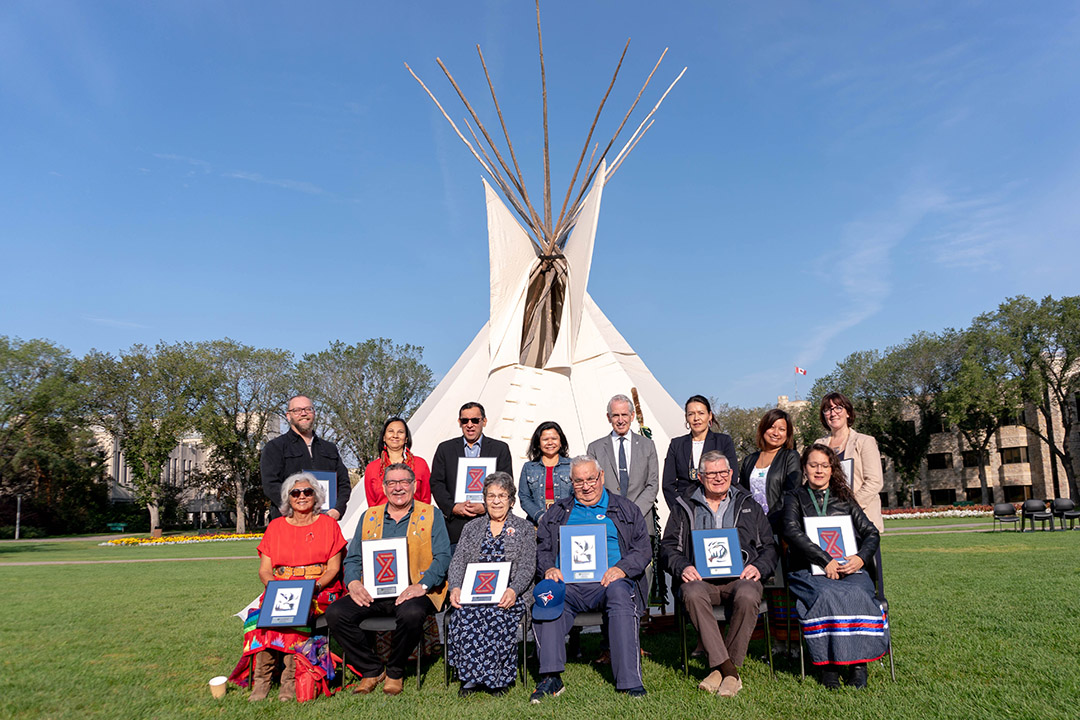
Indigenous initiatives help shape the future of U of S
As an Indigenous student starting college straight out of high school in 1983, Jacqueline Ottmann remembers the University of Saskatchewan as a very different place.
By Chris MorinAs she recalls, there were few other Indigenous students, faculty and staff. But by the time Ottmann returned for her master’s degree in 1999, the U of S already felt more welcoming.
Now, since becoming the campus’ first ever vice-provost, Indigenous engagement in 2017, Ottmann has made it her mission to ensure that the university’s commitment to Indigenization is a profound and lasting transformation. And while her office is a relatively new one for the U of S, where 3,100 self-declared Indigenous students were enrolled in 2017, Ottmann said that the willingness and support from university leadership, faculty and staff inspires her work.
“I have the privilege of travelling the country and seeing what other universities across Canada are doing, and we are being seen as a national leader when it comes to Indigenization,” said Ottmann. “We have one of the highest Indigenous student populations within the U15 and we have a significant population of Indigenous staff and faculty. That’s all very exciting, and how we move through these next few years will have a great impact on the future.
“I get excited by the opportunity to not only support the Indigenous community, but also to support the systemic transformational process the university is undergoing right now.”
A significant part of that process will be guided by contributions from Indigenous Elders, Traditional Knowledge Keepers and Language Teachers, who informed the University Plan 2025, and gifted it an Indigenous name during a ceremony on Aug. 29 in advance of the plan’s official launch later this fall. Ottmann said what makes the plan unique is that it draws upon Indigenous perspectives to inform the university’s overall principles.
“The university plan focuses quite heavily on Indigenization, reconciliation and decolonization as well, and I’m encouraged by the commitment that the U of S has made towards reconciliation,” said Ottmann, who adds that a northern strategy is also in the works.
“We are meeting with deans across campus who are looking on developing relationships with First Nations (and Métis), and we have a number of colleges that are doing so already,” said Ottmann, noting that the U of S plans to employ a counsellor dedicated to Indigenous students for culturally appropriate counselling. “It’s important to be visible and meet Indigenous people where they are at, whether it is at their First Nation or elsewhere.”
Ottmann also points to a number of initiatives taking place this fall at the U of S, including the Building Reconciliation Internal Forum on Sept. 18, and the FSIN Post-Secondary Forum on Sept. 25-26. She hopes that events such as these will help develop relationships with Indigenous leaders and their communities.
While the changes since she first began attending undergrad classes have come slowly, Ottmann acknowledges that there is a sense of urgency for many on campus—including herself.
“I have a five-year term and within that amount of time I would like to support this process as much as I can. It motivates me to be all in and fully engaged,” said Ottmann, who added that a number of initiatives in progress will be rolled out in the coming months and into 2019 to support Indigenization efforts.
“This office, and all the work that needs to be done, has been anticipated for so long. There has been advocacy for this for so long, and when it finally came together there were some very high expectations. But there is so much support from the Indigenous community, which is ‘we are here to support you’ and that gives me hope and strength. I’ve been involved in some decision-making circles where it is the first time that an Indigenous person has had an equal voice at those tables.”

